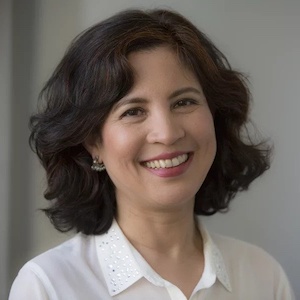Futuro Media launches subscription tiers with ad-free listening

Futuro+ offers early access to full seasons of new programs.
Futuro Media has introduced a new subscription program with benefits like ad-free listening and early access to the second season of its Pulitzer Prize-winning podcast Suave.
Futuro+, which launched April 7, includes a $6.99 per month “Futurista” subscription tier and a $9.99 per month — or $100 if paid annually — “Campeón” tier.
The subscription packages are part of Futuro’s strategy to diversify its revenues. Founded in 2010 by Latino USA anchor and EP Maria Hinojosa, the multimedia company has built a loyal audience, said co-CEO Marlon Bishop.
“We really are appealing to audiences who want to support independent media, who want to support fact-based media, who want to support media that looks and sounds like them,” Bishop told Current.
The “Futurista” tier includes ad-free listening, behind-the-scenes bonus episodes and early access to full seasons of content.
For example, Futuro+ subscribers could binge the whole second season of Suave April 7, eight days before weekly releases of new episodes began Tuesday.
Subscribers in the “Campeón” tier get those benefits along with virtual events with Hinojosa and other Futuro staffers and quarterly sneak peaks of upcoming stories.
Futuro Media operates as a nonprofit news organization and podcast studio. Latino USA, its weekly series distributed by PRX, has aired for more than 30 years and is carried by 386 public radio stations. The portfolio of Futuro Studios podcasts includes Suave, La Brega, and Anything for Selena. Its investigative journalism arm produced the 2022 podcast USA v. García Luna and the Frontline documentary “After Uvalde: Guns, Grief & Texas Politics.”
Hinojosa has reported for PBS, CBS, WNBC, CNN and NPR, and centered her career on news stories that have been overlooked by mainstream media. She founded Futuro Media in 2010.
“When I was a little girl, I watched the evening news broadcasts every night with my family,” Hinojosa said in a news release. “I was hungry for stories that brought the world into our living room and taught me about how other people were living. But even though we watched nightly, we never saw stories about people like us.”
Planting a tree
From independent creators using Patreon to publishers like Amazon’s Wondery, subscriptions have become a key part of the podcast business model, Bishop said.
In creating Futuro+, the team also wanted to create a fun experience, he said.
“Right now, if you go to the Latino USA+ bonus feed, there’s going to be what we’ve been calling, ‘behind the scenes chisme,’” Bishop said. “‘Chisme’ means gossip in Spanish. So Maria Hinojosa, our founder, gives … juicy stories from her journalism career.”
Futuro reduced its staff in 2023 amid months of “economic uncertainty that have affected the podcast and news industries,” as it said in a post on X.
The ship has since been righted, Bishop said.
“We did a round of emergency fundraising … that really helped us get back on our feet, and then also just implemented very careful budgeting and spending in order to turn things around,” he said.
But the experience was an inspiration to look at new funding models by asking questions such as, “What are we missing? What are we doing that’s working?” Bishop said. “And that’s where … a membership subscription came up as an option.”
Membership programs take time to build, he added. With the costs of producing and running the subscription service, it won’t be a huge funding boon immediately.
“If you want to plant a tree, the best time is 30 years ago, the next best time is today,” Bishop said. “So it was time to kind of grow that tree of member support.”
Subscription models
Before launching the subscription plan, Bishop said Futuro talked with PRX about its Ear Hustle podcast, which offers subscriptions.
Another model was Canadaland, an independent news and podcast company in Canada that has more than 10,000 supporters, according to its website.
“[Canadaland] really, really heavily invested into the subscriber model and were very successful with it, but were also a similarly sized publisher to us,” Bishop said. “It was a bit of an inspiration that if you were a relatively small publisher, you could still attract a meaningful subscriber base that could fund … in their case a large portion of their operations.”
So far, the launch of Futuro+ has gone well, Bishop said.
“We’ve been attracting subscribers and members at both of the tiered levels and it felt like a successful launch,” Bishop said. “The tech went off without a hitch, the art is really beautiful, the bonus content is really great and every week from here on out we’re going to be offering something new.”






